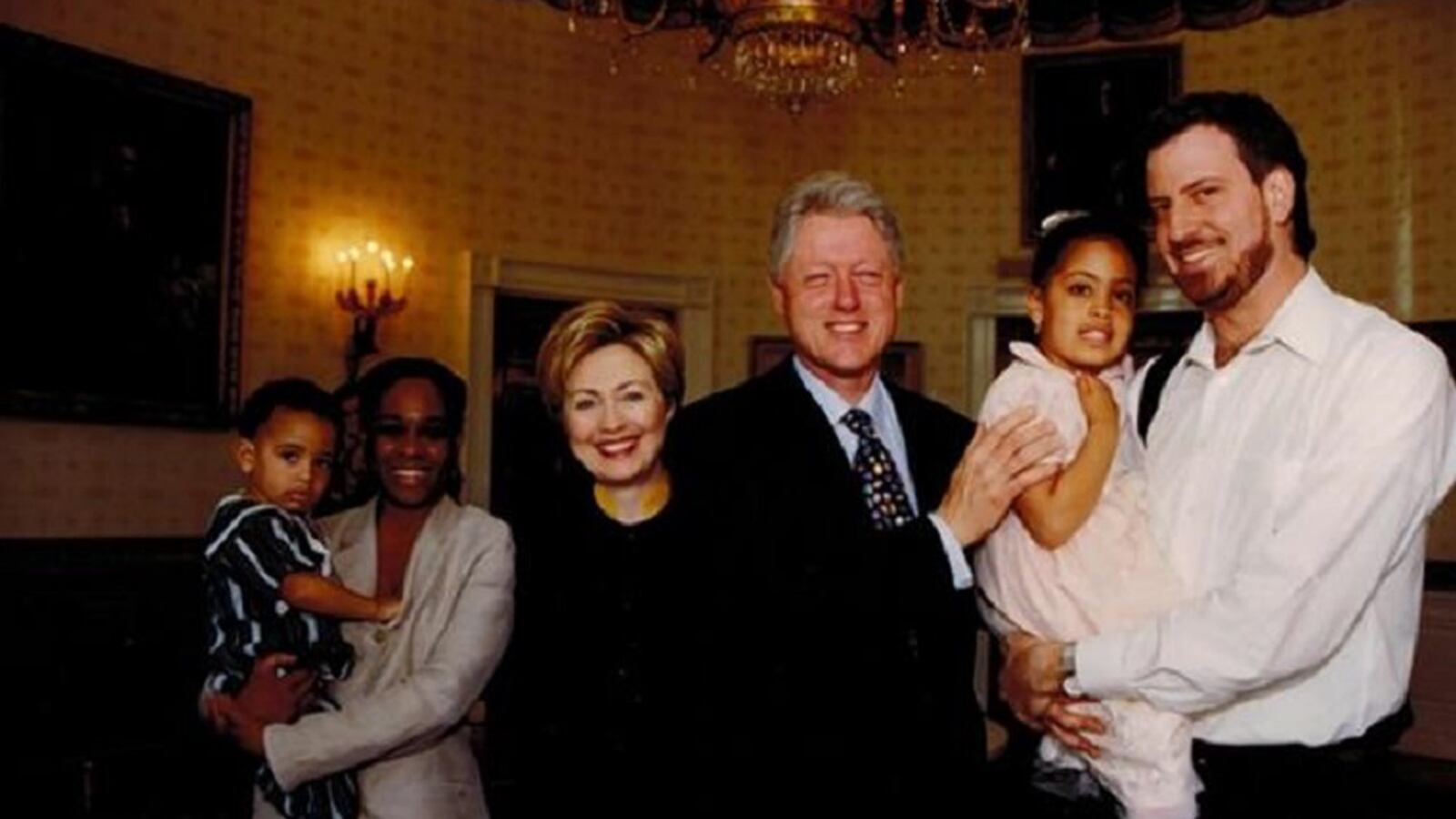So the year opens with a bit of a surprise, a little piece of news that however symbolic certainly made me look twice. As Bill de Blasio takes the oath of office to be the new mayor of New York at high noon today, it’s Bill Clinton who’ll be doing the swearing in. This is interesting not because De Blasio asked, assuming that’s how this was set in motion, but because the Big Dog agreed. This gives us a little hint of how the Clintons are catching the scent of the prevailing Democratic winds—and serves as a nice down payment on the 2016 New York primary, because Bill, as I’ll explain, knows that New York primaries can be difficult affairs.

De Blasio has a history with the Clintons, but it’s not what you’d call a particularly warm one. Hizzoner was Hillary Clinton’s campaign manager in 2000, and while that title bespeaks power and closeness to candidate, it was in that case a misnomer. De Blasio didn’t manage that campaign in any meaningful sense. Mark Penn did. Then Mandy Grunwald. Then Harold Ickes. Then Howard Wolfson. Then the White House aides and circle of friends whose judgment she’d relied on for years. After all that, not much space left on the totem pole.
What De Blasio actually did, as nearly as I could ascertain while covering that campaign—a time period when he (a friend of mine going back to 1989) never returned my calls—was that he was the liaison between the campaign and the local Democratic potentates who had to be stroked and coddled. He was in this sense a sort of deputy to Ickes, making sure that the big Jewish or black or Latino or upstate politicos had a line to the campaign. When Hillary hit a rough patch days before the voting over accepting donations from something called the American Muslim Alliance, it fell to De Blasio, and a few others, to smooth the highly ruffled feathers.
It wasn’t his favorite experience. And back in August, The New York Times published a long story that diminished De Blasio’s role even beyond that not-very-happy reality. You’ve read over the years that Clinton people are unusually loyal. In my experience, this is mostly true. But De Blasio didn’t remain all that close to them.
Even so, there’s nothing particularly bad about the relationship, and there’s nothing surprising about why De Blasio would want Bill: immensely popular in his adopted New York, the elder statesman, a reassuring figure to many of those who fear the new mayor is going to municipalize the banks. That Clinton said yes, however, is a little surprising.
It must be assumed at this point that even if Hillary Clinton doesn’t know for sure just yet whether she’s running in 2016, she will make the public moves she does with an eye toward doing so. It follows from that that Bill will do the same. Every speaking invitation, every endorsement, every major policy pronouncement: Will this potentially help Hillary?

So he obviously thinks that swearing in De Blasio will help her, which means in turn that Bill Clinton thinks that De Blasio-style left-leaning populism represents something real within the Democratic Party. Can’t hurt, the Clintons must be thinking, to make a symbolic hitch-up to that wagon. Could make Elizabeth Warren, and all the liberal money people who are keen on her, think twice.
Could also help down the road in a New York primary. Now—Hillary Clinton, an ex-New York senator, should not have trouble in a New York primary. New York usually votes in April, and on paper, she should have the nomination wrapped in February. But you just never know. And Bill remembers what New York can be like.
In 1992, after the early stumbles, Bill was coasting to the nomination as winter surrendered to spring. Then, Jerry Brown beat him in Connecticut. New York was up next. New York Democrats like their lefty underdogs. The New York campaign lasted two weeks. If it had been just one week, Brown, who won the backing of major union leader Dennis Rivera and some other bigwigs, might well have won, and if he had, the nomination race would have been in disarray. But during the second week, the city’s Democratic establishment coalesced, and Bill held on to win. A similar dynamic unfolded in 2000, when Al Gore needed everything to beat back Bill Bradley in New York. New York primary voters, the Clintons know, are Warrenites at heart. De Blasio is too. But there’s little chance after this that De Blasio can endorse anyone other than Clinton.
So it’s smart positioning on the Clintons’ part, and more than that, it’s positioning that seems to indicate that they’re going to take the left seriously. But symbolism is only semi-serious, so the bigger question is what positions will Hillary Clinton take that will move her a bit to the left?
This doesn’t get written about very much yet—it’s still a little early for this sort of thing, even for a lot of junkies. But inside the liberal activist world, there’s already a Hillary-centric debate going on: Should we just make our peace with her because she seems inevitable and we want a woman president and so on, or should we defy her as just another Rubinite who’ll sell us out and declare our allegiance to Warren or Bernie Sanders?
Clinton is going to have to take this seriously. It’s highly unlikely she’d lose the nomination, but she’ll have to demonstrate to Democratic voters that she’s in tune with the times and their top concerns. As one hopes she learned in 2008, “I’m inevitable” won’t do it. She’ll need to speak seriously to economic inequality, wage stagnation, taxation, and other issues that Democrats care about these days. The “New Democrat” platform—poof!—is more than two decades old.






